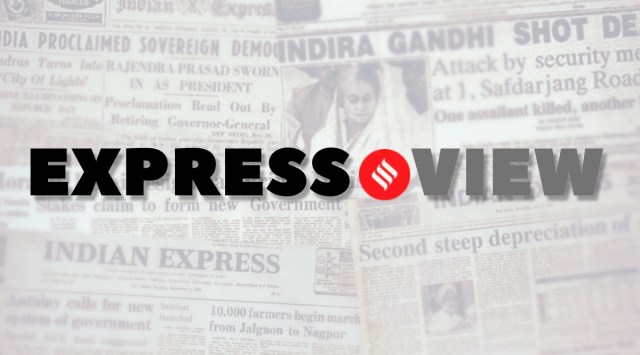
At a time when India, in the year of its G20 presidency, draws the world’s attention to its strength, which is the power of soaring ideas, vaulting innovation and its rapidly changing place in the global order, a discordant note is struck. The Centre for Policy Research, one of the country’s most respected public policy think tanks, is bearing the brunt of a two-pronged attack. Its FCRA registration has been suspended — the Foreign Contribution (Regulation) Act, 2010, is the law that regulates financial contributions from abroad to individuals and organisations. This freeze on foreign funds comes amid a bid to squeeze — last year in September, the Income Tax Department conducted “surveys” on CPR alongwith Oxfam India and the Bengaluru-based Independent and Public-Spirited Media Foundation. The surveys were followed by summons to its staff, culminating in a show-cause notice threatening cancellation of tax exemption that it has had as a non-profit under Section 12A of the I-T Act since 1976, valid till 2027. Even a cursory glance at the allegations against the CPR is enough to see the obvious — the charges play with technicalities and the elaborate state action yields no major discoveries of wrongdoing. The CPR is being slapped with process as punishment.
That the organisation is being asked to take responsibility for I-T returns not filed or filed irregularly by staffers including the office peon, that it is asked to explain how the publication of books, among its pivotal functions, is not an overstepping of its mandate, and that the I-T Department, which includes in its notice observations and allegations not directly related to its ambit of operations, presumptuously arrogates to itself the power to restrictively define the think tank’s mandate, is not incidental. The CPR itself has been dignified in its response. It has said that it has followed due process and continues to comply with the law. It has pointed out that it has been routinely scrutinised and audited by government authorities. But its current predicament is part of a larger dismal pattern — a political establishment that weaponises the rule-book’s small print to shrink spaces for free expression.
The government must dispel that spectre. And the CPR must be left alone, in fact enabled, to do what it does, and which is an essential part of a deliberative democracy. It must continue to conduct, as it said in its statement after the September raids, “research that contributes to high quality scholarship, better policies and a more robust public discourse”. Not far from CPR, G20 foreign ministers were exchanging ideas on the stage of another think tank, this one “in partnership” with the Ministry of External Affairs. It shouldn’t be the tax inspector who gets to decide what a think tank should do.